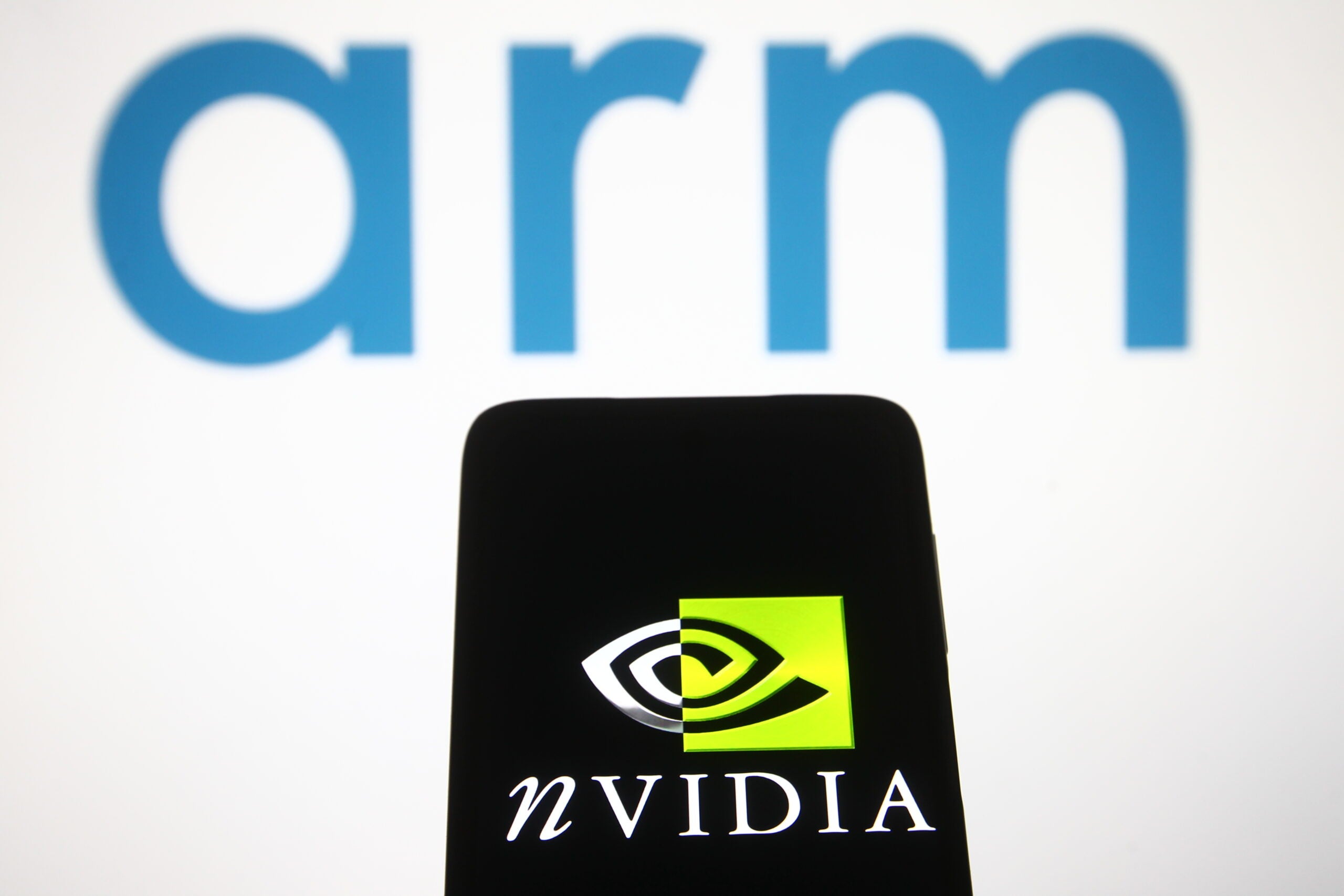
The EU’s competition regulator has formally opened an antitrust investigation into Nvidia’s $40bn acquisition of Arm, further delaying the deal and jeopardising the chances of it going through at all.
The European Commission said on Thursday it’s “concerned that the merged entity would have the ability and incentive to restrict access by Nvidia’s rivals to Arm’s technology”.

Access deeper industry intelligence
Experience unmatched clarity with a single platform that combines unique data, AI, and human expertise.
The Commission added that this could lead to “higher prices, less choice and reduced innovation in the semiconductor industry”.
US-headquartered Nvidia is the world’s largest graphics processing unit maker and its GPUs are widely used in artificial intelligence applications. UK-headquartered Arm designs computer processing units and sells licenses for that intellectual property (IP). Its processor licenses are used in the majority of the world’s smartphones, making it a critical player in the semiconductor ecosystem.
“Semiconductors are everywhere in products and devices that we use everyday as well as in infrastructure such as datacentres,” said European Commission executive vice-president Margrethe Vestager. “Whilst Arm and Nvidia do not directly compete, Arm’s IP is an important input in products competing with those of Nvidia, for example in datacentres, automotive and in Internet of Things.
“Our analysis shows that the acquisition of Arm by Nvidia could lead to restricted or degraded access to Arm’s IP, with distortive effects in many markets where semiconductors are used.”

US Tariffs are shifting - will you react or anticipate?
Don’t let policy changes catch you off guard. Stay proactive with real-time data and expert analysis.
By GlobalDataThe EU’s probe into the Nvidia-Arm deal has been expected for the last couple of months. It will investigate whether competitors would still have “effective access” to the technology underpinning semiconductor products at “competitive prices”.
An Nvidia spokesperson said: “We look forward to the opportunity to address their initial concerns and continue demonstrating that the transaction will help to accelerate Arm and boost competition and innovation, including in the [European Union].”
The Commission said it will decide whether to approve the deal by 15 March 2022, which was the original time frame predicted when Nvidia announced the deal in September 2020. Back then, Nvidia expected to pay $40bn in a cash and stock deal. Because Nvidia’s share price has increased since then the deal is now valued at $54bn.
However, even if the Commission completed the probe by March, the deal still faces separate regulatory pushback in the UK, US and China.
The UK’s Competition and Markets Authority said in August it had “serious competition concerns” about the deal.
Arm is currently owned by Japan’s Softbank after it bought the Cambridge-based company in 2016.
Because Arm has a division in China the deal must also receive regulatory approval from Beijing, where progress is reportedly sluggish.
Mike Orme, senior analyst at GlobalData, said: “A key dangling question is whether regulators would be able to ensure Arm neutrality indefinitely were the deal to clear all the initial regulatory hurdles. That would need something like China’s regulatory environment and algorithm law in place in Europe, the US and the UK.”
Laura Petrone, principal analyst in the thematic team at GlobalData, said the EU’s investigation into Nvidia was reflective of increased scrutiny among regulators globally.
“More generally there’s an increasing concern by regulators all over the world that digital platforms use acquisitions to crush competitors,” she said. “We’re going to see more investigations and more attempts from regulators to deal with antitrust issues pre-emptively.”
Orme added: “One thing is clear – it’ll now be at least 18 months before Nvidia’s fate in this matter is sealed.”







